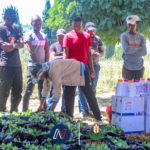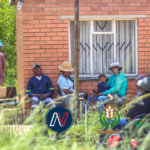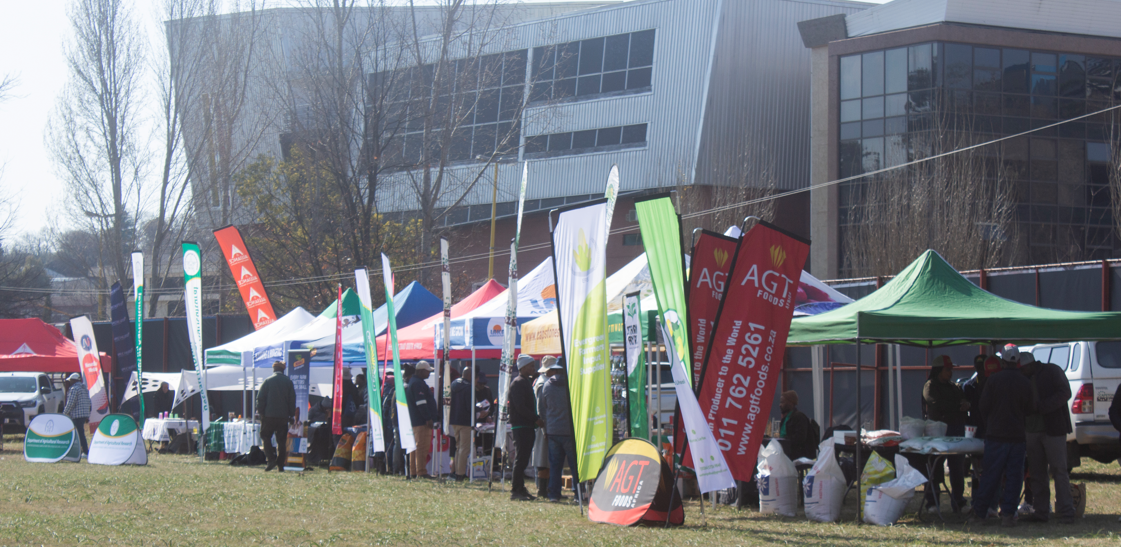Lesotho celebrated a historic milestone in agriculture this month, hosting its very first national agricultural trade fair, themed “Strengthening market systems and value chain linkages for inclusive agriculture.”
The event, a collaborative effort between the government, Smallholder Agriculture Development Project II (SADP II), the International Fund for Agricultural Development (IFAD), the World Food Programme (WFP), and the World Bank brought together farmers, agro-dealers, suppliers, financial institutions, development partners, and government officials in a vibrant showcase of the country’s agricultural potential.
Thabo Sekhonyana, acting as program director for the day, set a warm and inviting tone, encouraging participants to engage openly, share ideas, and forge new connections.
Thabo Moleko, the Principal Secretary of the Ministry of Agriculture, Food Security, and Nutrition, highlighted the importance of the fair, describing it as a platform for the country to demonstrate the strength and resilience of its agricultural sector while addressing pressing challenges.
“This trade fair is vital for advancing food security and nutrition across Lesotho,” he said.
He outlined key objectives, including improving smallholder farmers’ access to inputs, finance, and markets, strengthening linkages between local agro-dealers and regional suppliers, and enhancing financial literacy among agro-dealers.
Moleko emphasised that the fair aimed to create an environment where deals could be struck, partnerships built, and market access expanded.
The World Food Programme (WFP) Country Director, Elliot Vhurumuku, expressed his gratitude to the ministry for its trust in WFP over the years. He stressed that sustainable food security goes beyond emergency assistance.
Vhurumuku further highlighted the importance of empowering communities to produce their own food.
“As the World Food Programme, our mandate has been to save and change lives, and we have learned that the more sustainable way to build resilience in food is not by providing food help, but by empowering communities to feed themselves. This event is a manifestation of our strategic plan of empowering farmers to produce for the country,” Vhurumuku said.
The event blended stage presentations with interactive sessions, including a seed and input showcase and business-to-business meetings.
Attendees moved from one exhibitor to another, exchanging insights and establishing direct relationships.
This hands-on approach allowed farmers to describe their products, learn new techniques, and expand their customer base, while suppliers gained valuable feedback and connections. The fair returned to the presentation stage after these interactions, culminating in a celebratory atmosphere that reflected the country’s collective commitment to agricultural growth.
Minister of Agriculture, Food Security and Nutrition, Thabo Mofosi, reiterated the government’s dedication to supporting farmers nationwide with better access to quality seeds, farming supplies, and markets. “Farming requires all Basotho to work together to ensure high production,” he said, urging collaboration between the private sector and farmers for the benefit of the entire nation.
The event concluded with financial sessions where banks showcased services tailored to the agricultural sector. Farmers were introduced to various financial products, loans, and insurance options designed to meet their unique needs. Banks also shared guidance on managing finances effectively, demonstrating their readiness to continue supporting farmers in achieving long-term sustainability.
As the fair drew to a close, participants spoke of the positive impact the event had on their businesses. Farmers reported gaining new customers, sharing lessons with peers, and forming valuable connections with other producers. Manufacturers expressed gratitude to the Ministry of Agriculture, encouraging more such initiatives to strengthen market access and overcome supply challenges.








